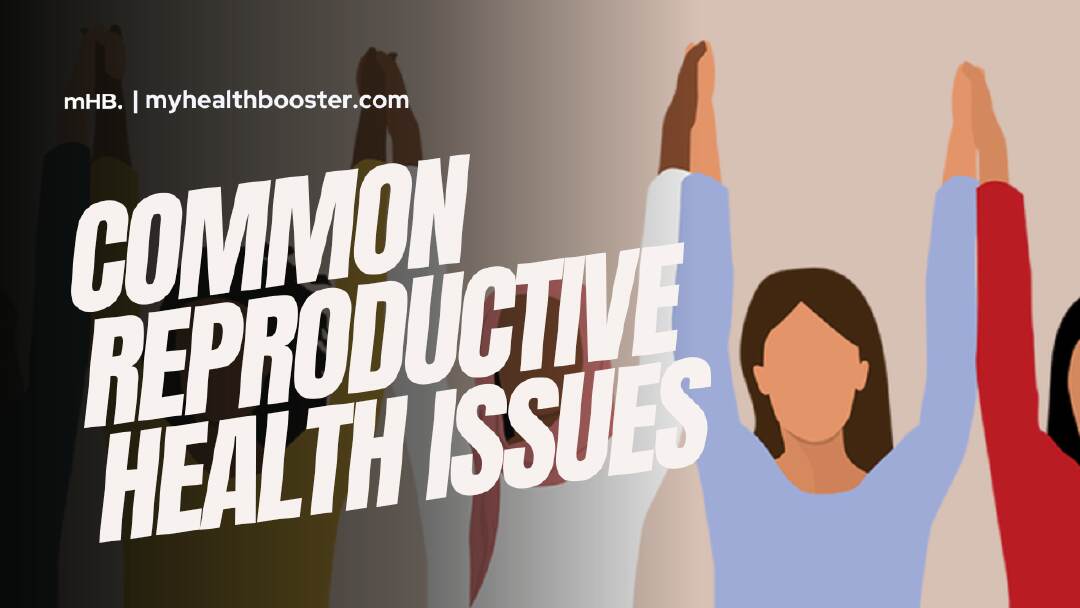Reproductive health is a crucial aspect of well-being, impacting individuals of all genders. The reproductive system comprises both internal and external sex organs, alongside hormone-producing glands, including the pituitary gland located in the brain.
Common Reproductive Health Issues in Women:
Conception and Contraception Problems:
- Unplanned or unwanted pregnancy
- Infertility or reduced fertility
- Side effects from contraceptives (like excessive bleeding post-intrauterine device insertion)
Puberty-Related Challenges:
- Early (precocious) puberty
- Delayed puberty
- Premature thelarche (early breast development)
Menstrual Issues:
- Irregular menstrual cycles
- Short or long menstrual cycles
- Painful menstrual cycles
- Heavy menstrual bleeding
- Bleeding between periods
- Early-onset menopause
- Polycystic ovarian syndrome (excessive production of male hormones or androgens)
- Uterine fibroids or leiomyoma (noncancerous growth in the uterine muscle layer)
- Endometriosis (growth of endometrial tissue outside the uterus)
Pregnancy-Related Concerns:
- Pregnancy-induced hypertension
- Gestational diabetes mellitus
- Eclampsia (seizures during pregnancy)
Lactation (Breastfeeding)-Related Issues:
- Inadequate milk supply
- Blocked milk ducts
- Sore or cracked nipples
- Excessive milk production
Sexually Transmitted Infections (STIs), including HIV
Hormonal Imbalances Affecting Sex Hormones:
- Estrogen
- Progesterone
- Follicle-stimulating hormone
- Luteinizing hormone
- Androgens
- Prolactin
Gynecologic Cancers:
- Cervical
- Uterine
- Ovarian
- Vaginal
- Vulvar
Sexual Violence
Genetic Disorders Affecting the Reproductive System, e.g., Genitourinary Malformations
Injuries
Common Reproductive Health Issues in Men:
Erectile Dysfunction (ED):
- Inability to achieve and maintain an erection firm enough for sexual activity
Low Sperm Count
Abnormal Sperm Morphology (Structure) or Motility (Movement)
Sexually Transmitted Infections (STIs), including HIV
Cancers:
- Testicular
- Penile
Puberty-Related Problems:
- Early (precocious) puberty
- Delayed puberty
Hormonal Imbalances Affecting Sex Hormones:
- Androgens
- Estrogen
- Progesterone
- Follicle-stimulating hormone
- Luteinizing hormone
- Prolactin
Sexual Violence
Genetic Disorders Affecting the Reproductive System, e.g., Genitourinary Malformations
Injuries
The Significance of Reproductive Health:
Millions of individuals are impacted by diseases and disorders involving their reproductive systems. Fortunately, most reproductive health issues can be prevented or effectively treated.
Prioritizing reproductive health is vital for a satisfying and safe sex life. It also empowers individuals to make informed choices regarding reproduction and family planning.
Tackling reproductive health issues ensures equitable access to the prevention and treatment of STIs, safe and effective contraception methods, fertility management, and reliable information on reproductive health. It’s the foundation for healthier, informed choices for all.
